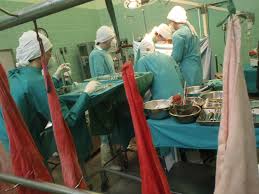Beijing uses its long arm to stifle people from speaking out about its atrocities.
Organizers who scheduled him to discuss the topic canceled at the last minute. Booked forum sites backed out with little explanation. A day before hosting him for a forum, one venue was the target of a drive-by shooting that left a bullet hole in the window.
During a separate live Q&A session, a man called in, identifying himself as a Chinese government police official.
“Are you afraid of death? You are brutally interfering in our Party’s internal policies,” the man said via an interpreter. “We’ll take revenge against you, are you not afraid of that?”
Mr. Matas remained steadfast. “If you don’t like what I said, try to stop organ transplant abuse in China and don’t threaten me,” he recalled saying.
More than trying to intimidate him, he said, Chinese authorities were acknowledging “they just want to insist on their position, even though they have nothing to say about it in their favor.”
That was 2008, two years after the regime’s mass killing-for-profit scheme first came to light. It’s a billion-dollar industry driven by the promise of extremely short waiting times for domestic and international patients. The supply comes from the forceful removal of organs from unwilling prisoners.
By 2024, not much seems to have changed in the Chinese Communist Party (CCP) other than a new veneer of subtlety.
Rather than clashing in the open, the regime now retreats more into the background, wielding its economic and diplomatic arm to muffle criticism while cajoling elites in the political and medical field to speak on its behalf. In some ways, it has succeeded. From political circles to entertainment and academia, a net of fear hangs over, frustrating those seeking to make headway in exposing the abuse.
Big Lie in Plain Sight’
In a near unanimous vote, Congress passed Rep. Chris Smith’s (R-N.J.) Stop Forced Organ Harvesting Act on March 27, 2023.
The next night, at around 10 p.m., the Chinese Embassy sent an angry missive to Mr. Smith’s office.
“China firmly rejects this absurd bill,” the official, Zhou Zheng, wrote. He repeated some communist party propaganda and demanded “that the U.S. side immediately stops baseless hype and anti-China moves.”
Mr. Smith, whose bill seeks to punish perpetrators with up to 20 years in prison, called it “a big lie in plain sight.”






We are a group of volunteers and opening a
new scheme in our community. Your website offered
us with valuable info to work on. You’ve done a formidable job and our entire community will be grateful to you.
Feel free to surf to my web site :: vpn
My brother recommended I would possibly like this web site.
He was once entirely right. This put up truly made my day.
You can not imagine simply how much time I had spent for this info!
Thanks!
Check out my web site :: eharmony special Coupon code 2025
nordvpn coupons
350fairfax
I was suggested this blog by means of my cousin. I’m no longer certain whether or
not this post is written via him as nobody else understand such designated approximately my problem.
You’re incredible! Thank you!
I know this site offers quality depending content and additional information, is there any other website which provides such things
in quality?
Review my web page … nordvpn coupons inspiresensation
If you are going for most excellent contents like me,
only pay a quick visit this web page all the time since
it gives feature contents, thanks
Review my webpage: nordvpn coupons inspiresensation
Pretty! This was an incredibly wonderful article. Thank you
for providing this information.
Look at my web site – nordvpn coupons inspiresensation
You’ve made some good points there. I checked on the
internet to learn more about the issue and found most people
will go along with your views on this site.
Feel free to visit my page; nordvpn coupons inspiresensation